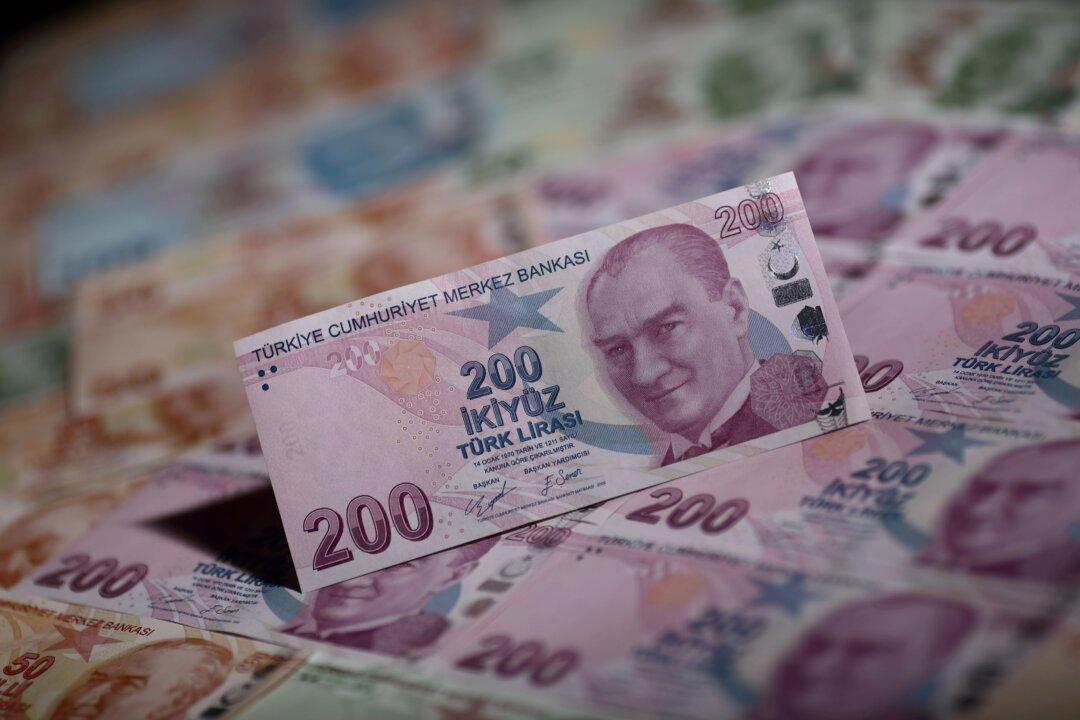The Turkish lira gained traction on Tuesday after President Recep Tayyip Erdogan’s government announced a number of measures to safeguard deposits in the national currency against currency fluctuations.
The lira hit an all-time low of 18.36 against the U.S. dollar on Monday following weeks of volatility. But on Tuesday morning, it rebounded to a high of 11.09. It was trading at 12.80 at 10:54 GMT Tuesday.




